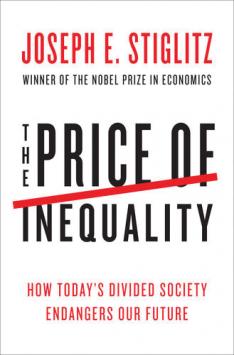By Joseph Stiglitz (W.W. Norton & Co., 2012)
Pope Paul VI argued that excessive economic inequalities were a “danger to peace” and that political power must be used to serve the common good rather than the special interests of the privileged. Nobel prize-winning economist Joseph Stiglitz echoes both of Pope Paul’s claims in his book The Price of Inequality: How Today’s Divided Society Endangers Our Future.

There has always been a divide between America’s rich and poor, but Stiglitz reports that for the past three decades this gap has widened exponentially. The richest 1 percent control 40 percent of America’s wealth, CEOs make 243 times as much as typical workers, and one family, the Waltons of Wal-Mart fame, has nearly as much wealth as the poorest 100 million Americans combined.
Stiglitz argues that the nation’s runaway economic inequality is not only unfair and inefficient but also threatens to destabilize our economy and undermine our democracy. This cancerous inequality is the foreseeable consequence of intentional political choices made on behalf of and in support of America’s rich. Government policies that favor the rich produce stagnant or declining wages for the rest of us.
Economic inequality produces terrible inefficiencies, wastes great quantities of human potential, and undermines the public’s faith in America’s democratic and legal structures. Stiglitz believes that the path to greater economic equality, efficiency, and stability is through political reform, by creating real and sustainable economic development through a more democratic and participatory economy.
The cause of inequality in America is not intractable market forces but our readiness to put profits over people. As Paul VI once argued, “Both for nations and for individual men, avarice is the most evident form of moral underdevelopment.”
This article appeared on the November 2012 issue of U.S. Catholic (Vol. 77, No. 11, page 43













Add comment